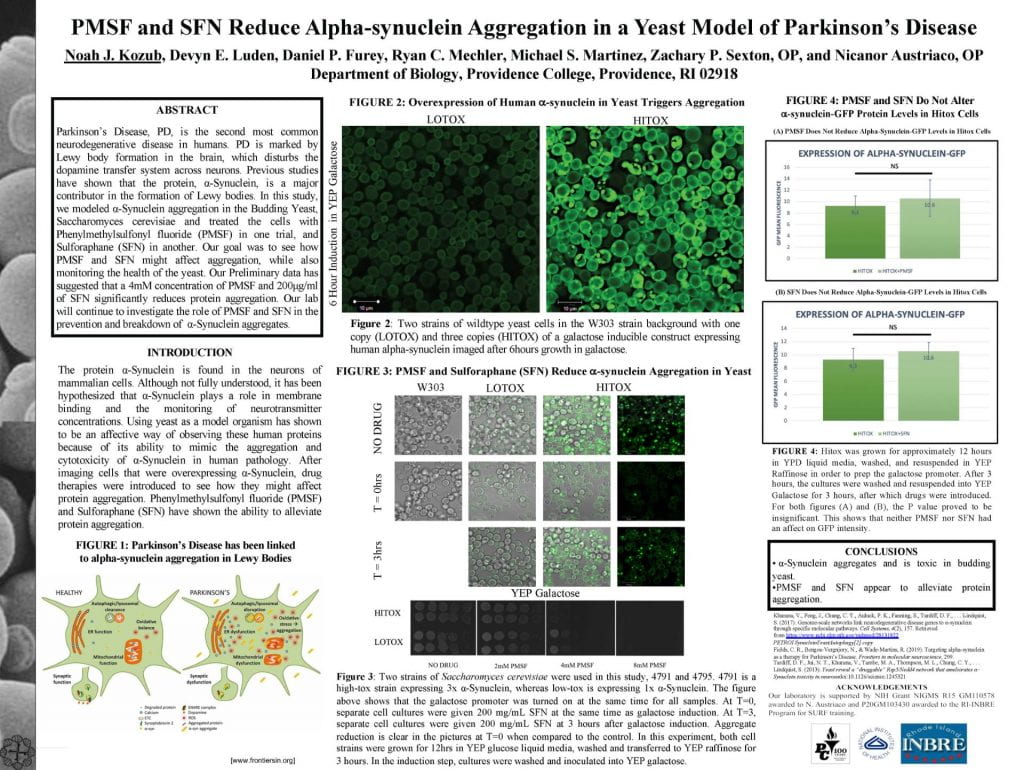Devyn Luden ’22, Noah Kozub ’22, and Daniel Furey ’22
PMSF and SFN Reduce Alpha-synuclein Aggregation in a Yeast Model of Parkinson’s Disease
Devyn Luden ’22, Biology
Noah Kozub ’22, Biology
Daniel Furey ’22 Biology
Faculty Mentor: Fr. Nicanor Austriaco, Biology
Parkinson’s Disease, PD, is the second most common neurodegenerative disease in humans. PD is marked by Lewy body formation in the brain, which disturbs the dopamine transfer system across neurons. Previous studies have shown that the protein, α-Synuclein, is a major contributor in the formation of Lewy bodies. In this study, we modeled α-Synuclein aggregation in the Budding Yeast, Saccharomyces cerevisiae and treated the cells with Phenylmethylsulfonyl fluoride (PMSF) in one trial, and Sulforaphane (SFN) in another. Our goal was to see how PMSF and SFN might affect aggregation, while also monitoring the health of the yeast. Our Preliminary data has suggested that a 4mM concentration of PMSF and 200μg/ml of SFN significantly reduces protein aggregation. Our lab will continue to investigate the role of PMSF and SFN in the prevention and breakdown of α-Synuclein aggregates.
Poster Presentation: Thursday, April 28, 2 – 4 p.m.






